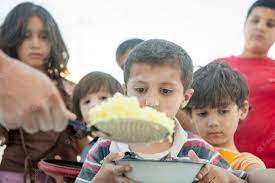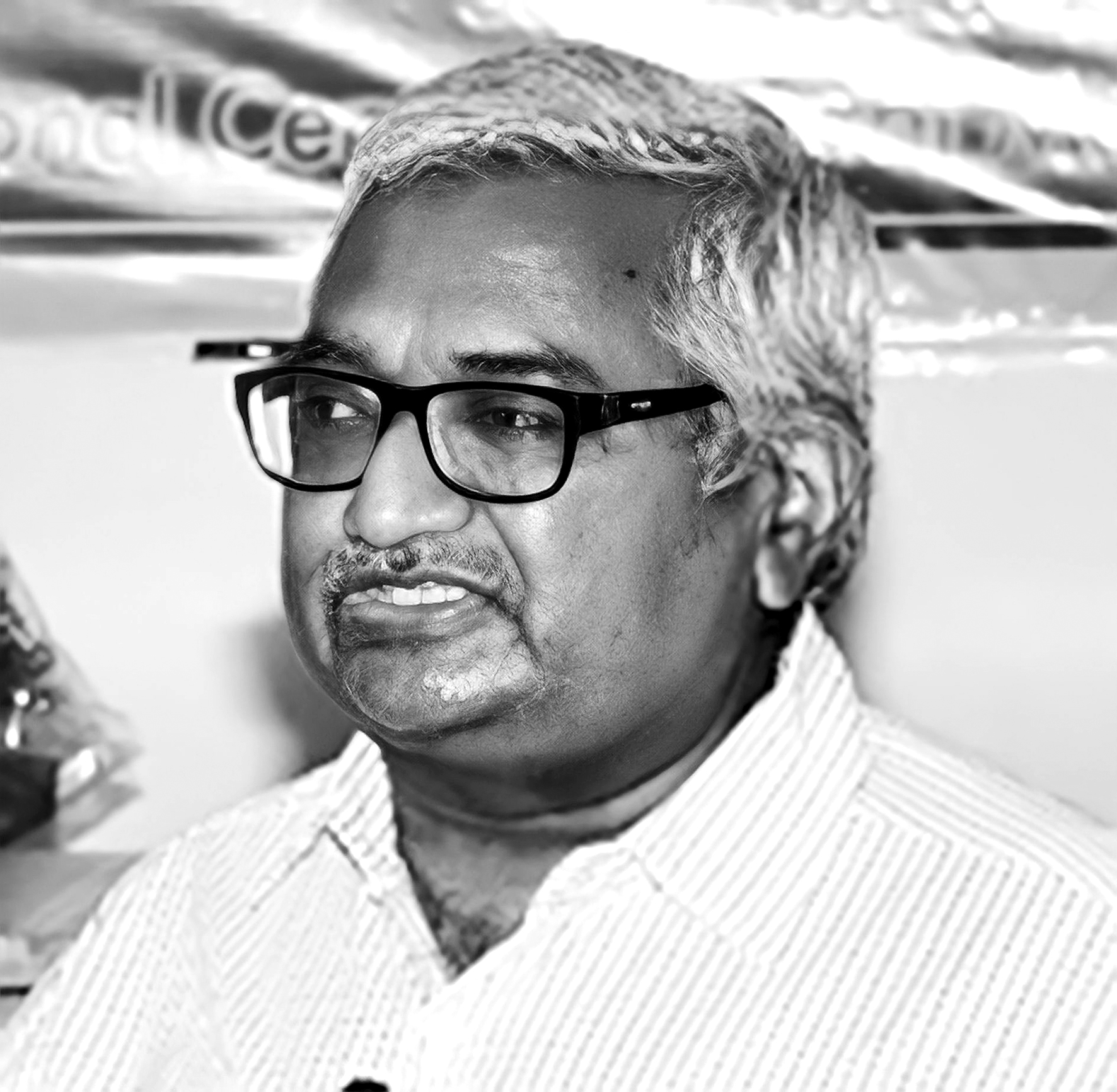

Hungry are Fed: The Church’s Commitment to Meet the Practical Needs of its Congregation
Dr. M. Anthony David MD
Tears streaming from her eyes, Apphia, a Greek widow limped to Philip, clutching her empty plate in her trembling hand. “Am hungry, brother Philip!” she cried, “This is the third day that I didn’t get food in our kitchen.”
Moved visibly, Philip broke bread from his plate and liberally gave it to her. "I have to approach Peter and ask about this,” he told her as she hastily stuffed her mouth with his bread.
The Apostles had just finished their breakfast as he approached Peter. They were gathering the leftovers from their meal in a basket. Philip spoke up for the forgotten Greek widows. "These women aren't getting their food during the distribution in our kitchen, Peter,” he remarked, “We need to do something about this injustice.”
Perhaps Peter remembered those pivotal words the Lord spoke to them, “You give them something to eat"?
Looking worried, he called for an assembly to discuss this issue. When the community assembled,Peter spoke, “It is not right for us to leave the exposition of the Word of God to investigate these practical issues. Let’s select some wise and godly elders to look after these matters…”
The Christian Church, the Ecclesia was birthed on that event-filled Pentecost day in the first century when the Holy Spirit God descended visibly on the believers assembledin one accord(Acts 2: 1-6) Quite early in the history of the church, this hassle in the distribution of food surfaced. (Acts 6:1) Concerned, the church appointed seven wise and godly men to oversee that justice is done. By God’s grace, different sections of the church members were represented by these seven. The names of the seven reflect this. Stephen, Philip, Prochorus, Parmenas, Nicanor, Nicolas and Timontook up this challenge.(Acts 6 :1 -6)
Yes, the Church of Christ catered to the physical needs of the congregation right from the early days of its inception. Praise God for this!
How did this happen to be, you ask? Let's look at what the Lord Jesus Christ did when faced with a hungry crowd. Did he send them off so they could find food? No. He categorically felt that it was up to them, his disciples, to feed these hungry people.When they advised him to send the people away, He commanded them, "You give them something to eat" (Luke 9:13). He graciously took the little, schoolboy's lunch which was with them, gave thanks for it and multiplied it so five thousand men could be fed. Not only that, He made sure that they all ate up to their full and twelve baskets full of broken pieces were collected by those unbelieving apostles. What a zeal He had, to feed the hungry!
The Christian Church has been instrumental in meeting the people’s educational, medical, and other social needs. It has also reached out in this way to the society at large. Using social action as an evangelistic method.
The church’s missionary work through the ages began with vocations such as education and health. The Church established many schools, colleges, universities, clinics, hospitals and hospices, orphanages and old-age homes in different parts of the globe. This social action formed the basis for missionary work, especially in the developing world. Even social change and animation of the oppressed and depressed people to seek and find their rights were spearheaded by the church. Extensive service in the community by the Church brought health and development to many marginalized people.
Let me quote a great example, the phenomenal work of the Christian Medical College Vellore. Just one woman, Ida Scudder, touched by the need for women doctors in rural India, had a vision and set out to do God's work. Training herself in Medicine, she returned to India and started a small school for women health workers. Many shared her work, and the church took this up. Today, a hundred years later, CMC Vellore is a shining example of the Church's work for her people, all people in fact, the society at large. Apart from training many mission-minded medical doctors nurses and para-medical personnel, this institution has birthed community health initiatives like the Rural Unit for Health and Social Affairs (RUHSA) in Kavanur block in Tamil Nadu, and the SLRTC Schieffelin Leprosy Research and Training Center in Karigiri. CMC graduates like Drs Rajnikanth and Mabel Arole pioneered and built up Community Health initiatives which got world acclaim. What more shall I say?
In general, in third-world countries, the Christian church was noted for its social actions such as educational and health initiatives. In some parts of the world, the church was active also in the social sector. The activism of the church brought about violent reprisals too.
Let me give an example. The assassination of the Archbishop of San Salvador Oscar Romero in 1980 is such a one. His sacrifice as it were, was one due to his suffering with the people and raising his voice for them. As the prelate of the church in his part of the world, he spoke out against social injustice and violence during the escalating conflict between the military government and the left-wing insurgents, which led to a civil war. He voiced the unsung story of the depressed and repressed people of his country. On 24 March 1980, as he was peacefully celebrating mass, Archbishop Oscar Romero was brutally shot and killed. Due to his martyrdom on that day, the United Nations General Assembly, in 2010, declared that the 24th of March is to be celebrated as the Day for the Right to Truth Concerning Gross Human Rights Violations and for the Dignity of Victims.
Another facet of the contribution of the Church to alleviate human suffering is the story of Father Damien.
Joseph de Veuster, a Belgian who after his ordination became Father Damien, was assigned to the island of Hawaii in 1865. At that time the Hawaiian government deported all the Leprosy patients to exile on the uninhabitable island of Molokai. You must remember that leprosy at that time was considered by many to be the curse of the gods. These poor affected people were shunned by their own families and by the society at large and lived in communities outside.
All these leprosy patients in Molokai lived in squalor and dirt compounded by a lack of basic hygiene, food, and shelter. It was like hell on earth.
In 1873, the Bishop in Hawaii asked for volunteers to go and serve those leprosy patients. Damien decided to go and live with these poor sufferers. He remained there for the next 16 years of his life.
He brought hope to these souls who were in despair. He gave a voice to the voiceless and law to the lawless. He built a community that discovered reasons for living.
When he contracted leprosy in 1885, Fr Damien simply addressed them, “We, lepers” he wrote, “find strength at the foot of the cross in our isolation.” He refused to be shipped out to Belgium to get better treatment. He continued to serve his beloved community till he died.
His suffering brought hope and life to this community of neglected leprosy patients. Out of his suffering came something good! The community of leprosy patients in Molokai began to live with dignity.
Father Damien represented the Church in its relentless service to humanity by offering to live and work with these dregs of humanity, as it were.
As their model and mentor Lord Jesus Christ did, the Church through the ages has been pioneering the uplift of the helpless and the depressed, repressed segments of human society.
If you look at a cross-section of the society in the developing world today, many of the intelligentsia owe their education and learning, their stature and position in society, to the fact that some missionaries in the yesteryear struggled to provide education to the people who were denied basic human rights.
Let’s get back to Philip and Apphia now…
The steward Philip smiled. He saw Apphia smiling at him a fortnight later. He asked her, “Hope you all are getting your supplies regularly?” She smiled and nodded.
“Thank you, Brother Philip,” she said, “Am very grateful to God and to your team which works harmoniously to help us. The hungry are fed. Bread and the Word sustain our bodies and souls indeed. Thanks be to God. May the Lord our God bless you all!”
